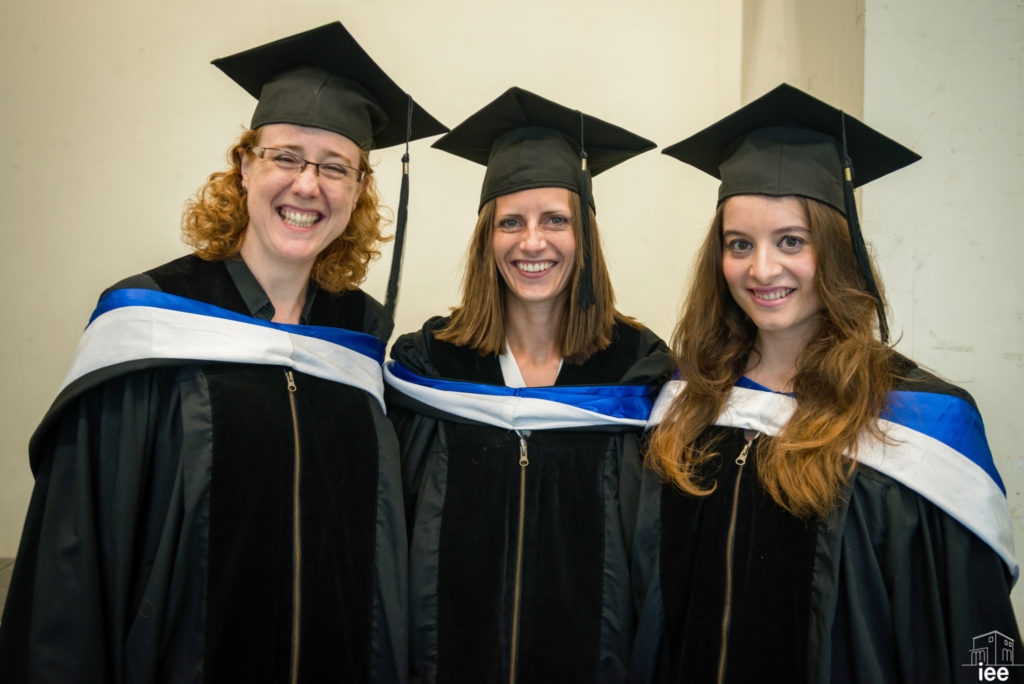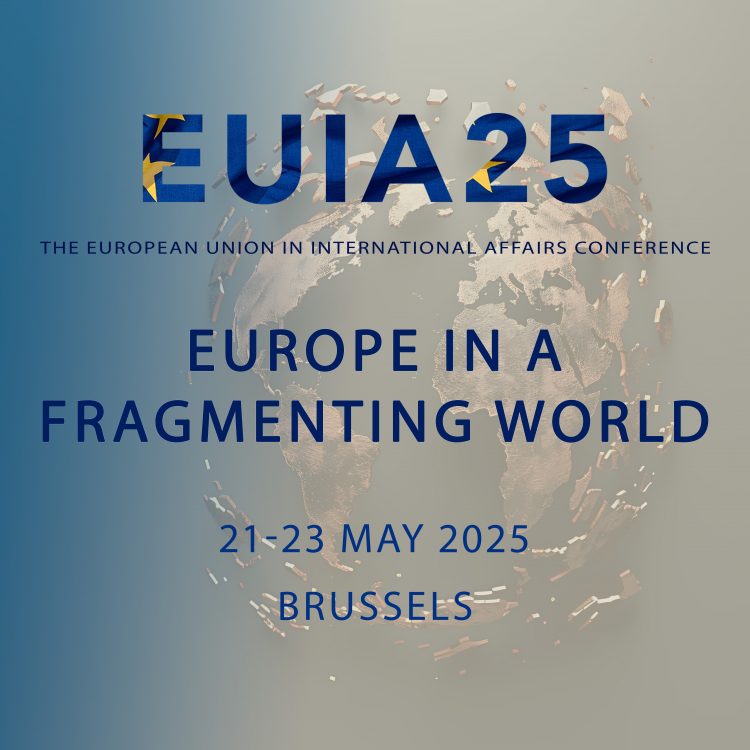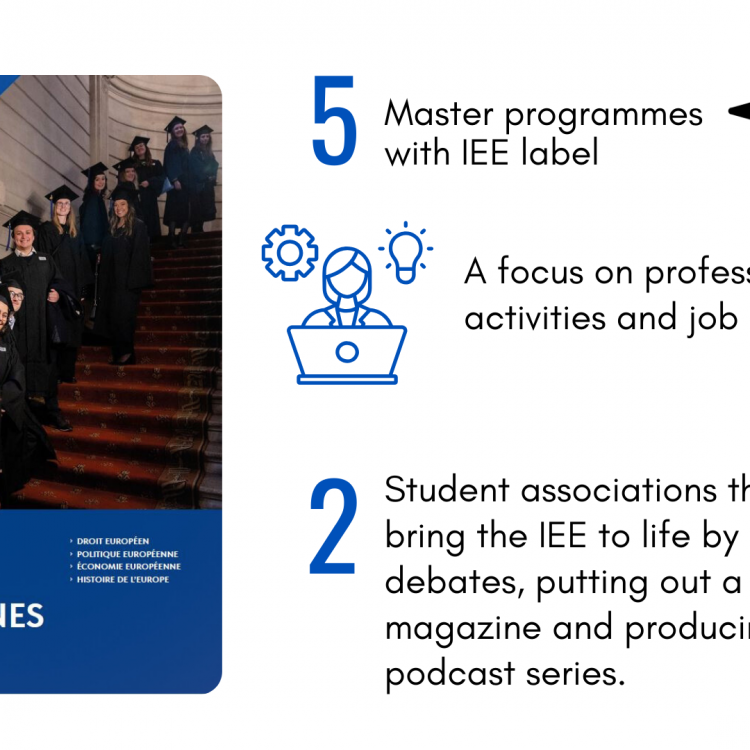The IEE-ULB will expand its online teaching, basing its specialised offering for professionals wishing to study European affairs in Brussels on its Executive Education programme (MEUS).
The programme, a 40-credit Certificate in European Union Studies, is conceived for those wishing to advance their EU careers, or for specialists in other fields who need to acquire or update competencies and skills in EU affairs. Participants can follow the full programme or choose the specialised modules that fit their professional needs.
“The Covid-19 crisis has taught us, among many other things, that we need to be flexible. Designed for professionals, MEUS is an evolutive programme and we have always strived to adapt it to participants’ needs. This next academic year, MEUS will be taught using a hybrid approach, with classes available both online and on site.” Professor Ramona Coman, IEE President and MEUS academic coordinator.
This next academic year, the Institute will organise its executive education certificate in collaboration with EURACTIV. The programme is taught following a staggered timetable and participants can personalise their training by following certain modules, courses or the entire programme.
The Fundamentals of EU Affairs
Starting in September, this completely revamped module, adapted to the COVID-19 related constraints, allows participants to examine the fundamentals of European integration, its governance and institutions from a political, economic and legal standpoint.
Professors will address in their courses the effects of the ongoing pandemic on the EU and its member states as well as on its relations with the world and the steps ahead. Six courses dig deep in these different aspects.
You can personalise your learning experience on the EU with our 5 modules. Participants of the Executive Certificate in EU Studies can choose the full programme or individual modules or courses. Study European affairs in Brussels will be possible both online and on site (except during potential lockdown situations).
Rethinking European governance in the times of the Covid-19 pandemic– EU institutions and Decision‐making
This 18-hour course taught by Dr. Cristina Vanberghen will offer participants the opportunity to experience the EU’s institutions and decision-makers first-hand, in interaction with Brussels-based policymakers and practitioners.
Developing personal strategies for dealing with EU institutions, preparing for a “Next-Generation” European career is also part of the objectives.
The EU, Global Governance and World Order in a time of crisis
Taught by Professor Pierre Vercauteren, this 18-hour course is an introduction to the issues of globalisation, governance, the transformation crisis of the State in contemporary world and the question of the European governance in such a context.
As a result of this course, students will be able to analyse the concepts and realities of global governance and to confront them to challenges of the question of globalisation. Particular attention is devoted to how the ongoing pandemic is reshaping the world order.
Participants shall master the capacity to make use of concepts of global or European governance and democracy in the analysis of various issues related to these notions in the contemporary world.
The Political Economy of the EU in Crisis Time – Current and Future Economic Challenges of the EU
Naim Cordemans and Professor François Ryckx provide participants with a combination of practice and academia. The 18-hour course focuses on the main economic challenges of the EU and its economic policies. It presents the position of the EU in the world economy and addresses the fiscal as well as monetary responses to the ongoing economic crisis induced by the Covid-19 pandemic.
Particular attention is also devoted to the labour market consequences of the crisis, notably in terms of employment and inequalities. The course may also cover more specific challenges ranging from population ageing to climate change, including international trade disputes.
Policymaking Outside the Bubble – How to Mobilise Innovation and Be Resilient in a VUCA World
What if, instead of being critical of the EU, we learned, collectively, to be creative? Through this course, the students will both develop a broad knowledge of key EU topics, learn how to read EU unfolding developments, and come to look at those through a creative rather than critical eye, appreciating the possibility of fostering collective innovation, in order to develop better and timely solutions to address societal challenges. Stephen Boucher will guide participants through this and other questions to boost creativity in order to navigate the challenges of a changing world during this 18-hour course.
The internal market in the post-Covid-19 era
Professors Martin Martínez and Peter Oliver will cover the four freedoms of the internal market, namely the free movement of goods, persons and capital and the free provision of services during this 18-hour course.
There will be a particular focus on the challenges for the internal market arising from the Covid-19 crisis, especially those caused by exceptional national measures concerning goods (e.g. export restrictions on medical products and equipment) as well as border controls and other measures affecting these freedoms.
The course aims at discussing the main principles of the internal market in order to understand how they apply to real-life situations.
The Politics of European Union Security
The main objective of this 18-hour course taught by professors Julien Jeandesboz and Elisa López Lucia is to provide participants with a thorough overview and understanding of the politics of European Union security.
The course examines the formation, shape and conduct of the EU’s internal and external security policies, including in relation to other areas of the EU’s external action.
Participants will examine European integration, its governance and institutions from a political, economic and legal standpoint. Six courses dig deep in these different aspects.
Ongoing renewal of contents and teaching formats
As EU affairs evolve, so do our courses and programmes. During the whole academic year, our academics will update the course contents and the best formats to suit the contexts and allow participants the best possible experience. Hybrid education will allow participants wishing to study European affairs in Brussels to follow the courses online and on site.
We invite you to download the MEUS brochure for more specifics on the different courses.
Registrations are open
Admission to our Executive Education programmes is based upon a decision by the Academic Council. If you have any questions, reach out to the Student Affairs Office meus.iee@ulb.be for more information. If you are ready to apply, begin the process by filling in our registration form. Seats are limited!




